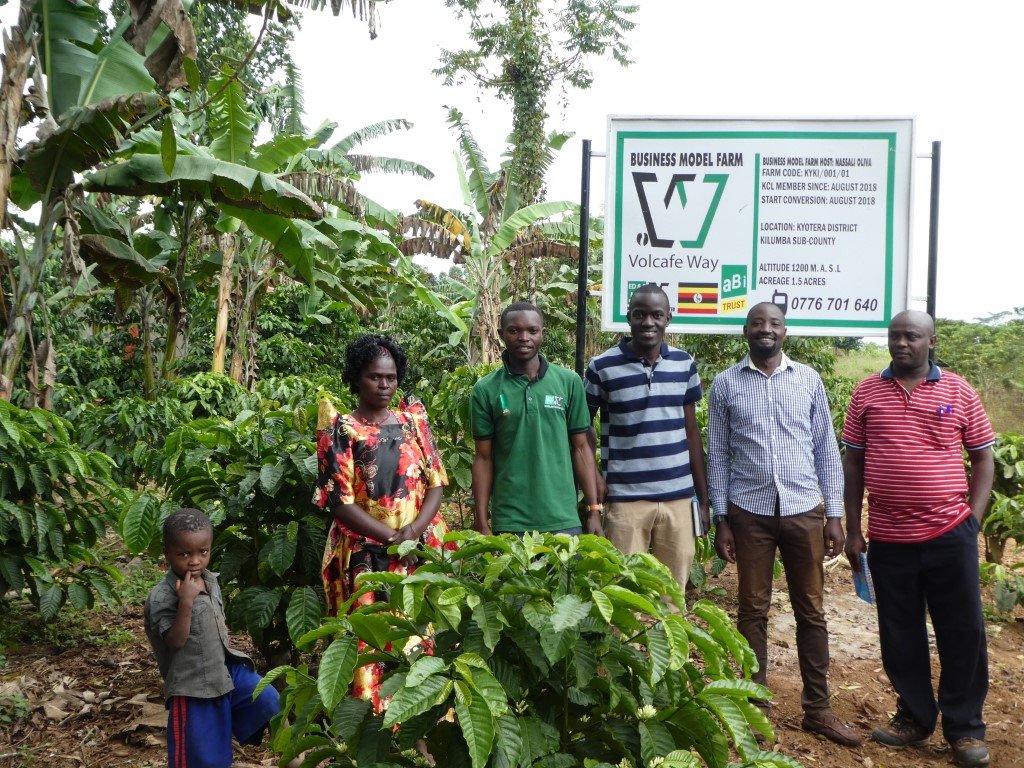Scaling Deforestation-Free Robusta Coffee Production in Uganda
In 2021, the Rebuild Facility provided a returnable grant to Kyagalanyi Coffee Ltd (KCL), one of Uganda's oldest and largest coffee exporters and local company of the Volcafe Group. The grant aimed to help stabilize KCL's operations during COVID-19 related financial challenges and expand its deforestation-free coffee initiative in the Greater Masaka region.
Uganda, known as the birthplace of Robusta coffee, relies significantly on coffee production for its economy. Coffee contributes to 15% of all Ugandan export earnings and more than 2.5 million people depend on coffee for their livelihoods, including over 1.8 million small-scale coffee farmers. Uganda is the world's eighth-largest coffee producer and the second largest in Africa (after Ethiopia), but faces challenges with increasing production and improving farmer incomes. Moreover, the COVID-19 pandemic disrupted supply chains and led to income losses for coffee farmers due to movement restrictions and reduced prices.
Image source: Rebuild Facility
Kyagalanyi is a 100% owned subsidiary of Volcafe
The Rebuild Facility's grant supported KCL’s efforts to purchase Robusta coffee from UTZ certified Masaka farmers, ensuring an average premium of €246 for each farmer. Additionally, it provided the financial foundation for expanding an agroforestry development program to combat deforestation, a pressing concern in the area. Deforestation has been prevalent in the Jubiya and Mujuzi Forests in Masaka since the early 1990s, mainly driven by conversion of forest area to agricultural land and the demand for timber, firewood, and charcoals. According to Global Forest Watch, Masaka lost 112ha of tree cover from 2001 to 2021, equivalent to a 13% decrease in tree cover, and 48.9kt of CO₂ emissions.
The impact of the grant can be categorized into three areas: unlocked private finance, livelihood security, and environmental protection. On the environmental front, KCL planted around 100,000 trees during the grant period, as part ofagroforestry and reafforestation efforts, and safeguarded farmlands to protect over 1,300 hectares of land. In terms of livelihoods, the grant benefited 1,661 coffee farmers, who received premium payments for their certified coffee.
KCL was the Rebuild Facility’s first grantee and the partnership paved the way for long-term sustainability in Uganda's coffee sector. In 2023, two years after the Rebuild Facility grant, KCL continues to expand their agroforestry efforts, including training farmers on agroforestry implementation. Given its position as a market leader in the sector, KCL’s agroforestry efforts could be a catalyst for shifting the sector toward more sustainable production methods and reduce deforestation rates.
To learn more about KCL’s success with the Rebuild Facility returnable grant, read the full case study here.5]

